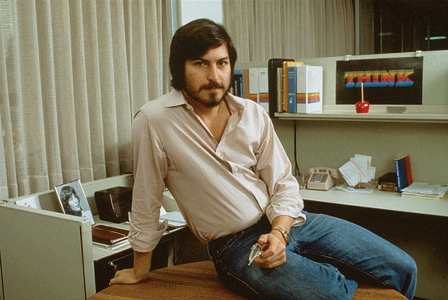Once a thing is developed and the dollar signs are in sight, venture capital is a really effective means of bringing it all home. But in those early days when it’s just risk without reward, government plays a crucial role. For political means, Mitt Romney excoriated the Obama Administration in 2012 for investing in alternative energy companies like Solyndra (a bomb) and Tesla (a boom), but as the philanthropic Bill Gates 2.0 recently pointed out, federal investment in such technologies is vital. Even far-less-essential tools like the Internet would not have gotten off the ground without DARPA dollars.
In a smart Alternet Q&A, Lynn Stuart Parramore asks economist Mariana Mazzucato about the interdependence of public and private sectors in birthing new industries and devices, including the ever-present iPhone. An excerpt:
Lynn Parramore:
We constantly hear that anything to do with government is incompetent and inefficient. Yet as you show, many of the industries and products that make our lives better wouldn’t exist without government-funded research. The whole process of economic growth is hugely interdependent with governmental action.
What about something like the iPhone? Is it a product of Silicon Valley magic and the genius of Steve Jobs? Or is there more to the story?
Mariana Mazzucato:
Economists have recognized that government has a role to play in markets, but only to fix failures, like monopolies, for example. Yet if we look at what governments have done around the world, they have not just stepped in to address failures. They have actually actively shaped and created markets. This is the case in IT, biotech, nanotech and in today’s emerging green economy. Public sector funds have not only supported basic research, but also applied research and even early-stage, high-risk company finance. This is important because most venture capital funds are too short-termist and exit-driven to deal with the highly uncertain and lengthy innovation process.
I often use the iPhone as an example of how governments shape markets, because what makes the iPhone “smart” and not stupid is what you can do with it. And yes, everything you can do with an iPhone was government-funded. From the Internet that allows you to surf the Web, to GPS that lets you use Google Maps, to touchscreen display and even the SIRI voice activated system —all of these things were funded by Uncle Sam through the Defense Advanced Research Projects Agency (DARPA), NASA, the Navy, and even the CIA.
These agencies are all mission driven, which matters to their success, including who they are able to hire. The Department of Energy was recently run by Steve Chu, a Nobel Prize-winning physicist, who wanted the Advanced Research Projects Agency-Energy (ARPA-E) to do for energy what DARPA did for the Internet. Would he have bothered leaving academia to join the civil service just to “fix” markets? Surely not. That’s boring.•


